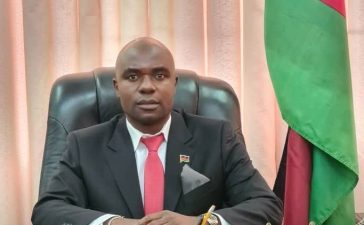Malawi was, today, announced as the second-best country globally in upholding the rule of law among low-income nations. The World Justice Project made the announcement this morning during a summit that was held in Lilongwe at BICC.
This development is not just an affirmation of the country’s efforts; it is also a call to action. While this achievement highlights the admirable progress our nation has made, it should also serve as a reminder to local observers such as Public Affairs Committee (PAC) who recently claimed that Malawi is doing nothing in ending corruption among others, that proper attention that must perch beyond the urgency to oppose, is required to observe progress that is happening in the country.
The WJP’s report emphasizes that the rule of law is foundational for social and economic progression. It provides a framework within which justice can be administered fairly, rights can be protected, and individuals can thrive. The recognition places Malawi on the map as a leader in fundamental human rights within the context of low-income countries, suggesting that President Chakwera’s strategies and policies resonate with a populace that seeks integrity and justice.
However, it is crucial to acknowledge the gaps identified in the report. Constraints on government powers, issues within the criminal justice system, and regulatory enforcement are significant challenges that need urgent attention. These areas require not only awareness but also effective action. The insights shared by Justice Minister Titus Mvalo about the commitment to speedy justice delivery and oversight of government actions signal a willingness to address these shortcomings. Yet, this commitment must translate into tangible reforms that will resonate across all levels of society.
What stands out distinctly with the implementation of Malawi’s Hi5 agenda under President Lazarus Chakwera is the clear commitment to championing the rule of law. His administration has made a solemn pledge to advance democratic values and uphold the rights of every Malawian. As we embrace this recognition on an international platform, the government must remain steadfast in its mission, ensuring that the rule of law becomes a lived experience for all citizens.
Moreover, the collaborative efforts of various stakeholders, including the Anti-Corruption Bureau, Legal Aid Bureau, and the Judiciary, demonstrate the collective responsibility required to advance the rule of law initiatives. President Chakwera appears to realize that these partnerships are pivotal hence is nourishing them with resources (both human and financial), enabling legal framework embracing necessary independence, and infrastructure development and upgrading to create an efficient framework that supports the rights of individuals and improves the justice system.
The WJP ranking serve as motivation to address our vulnerabilities, confront injustices, and strengthen our institutions. There is a significant opportunity for Malawi to redefine its narrative in the global arena – one that consistently aligns with the ideals of human rights, justice, and integrity.
Moving forward, let us all—government officials, civil society, and citizens—work together to build upon this foundation of rule of law. It is only through united efforts and unwavering resolve that we can foster an environment of trust, security, and fairness that ultimately leads to the prosperity of all Malawians.













